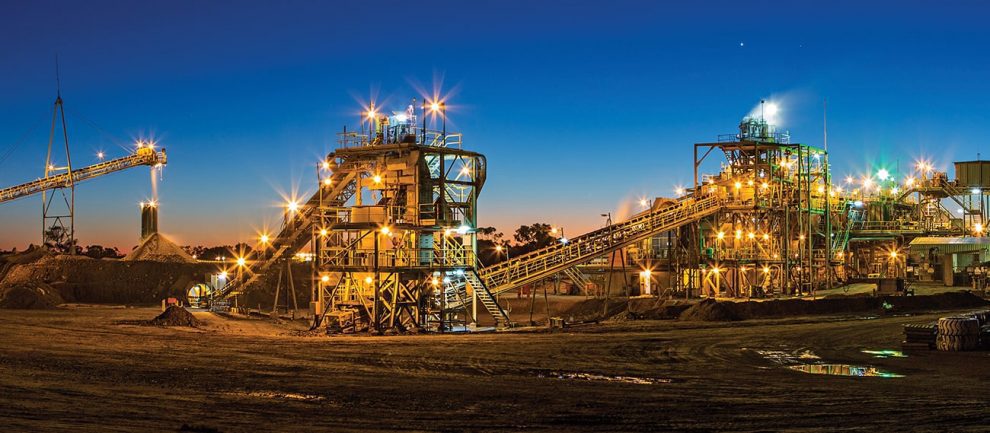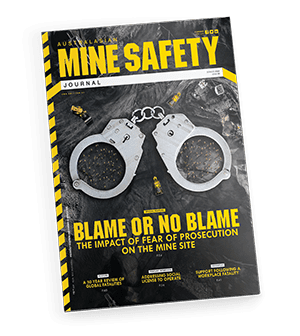AMSJ spoke with Phil Preston an expert in collaborative ways of working and the social impacts of business on the changing landscape of social license to operate.
Tell us a little about your experience in the corporate sector and how you got to where you’re at today?
For full disclosure, I’m a born and bred Tasmanian who came to Sydney in 1988 to start work with the AMP Society – a very different organisation back then to what it is today! The 19 years I spent in various insurance and investment roles was just a warm up for a mid-life crisis that gave me the impetus to set up my own consulting business. Since 2008 I’ve been helping companies, not-for-profits and government address collaborative challenges.
What’s your personal philosophy on social responsibility in corporations?
It’s an essential corporate function, and one that primarily is about protecting brand and reputation. While it can help in some areas, corporate social responsibility departments have limited budgets and aren’t usually involved in setting business strategy, so the actual impact they make is limited. I’d expect companies to view health and safety as an operational issue and not part of their social responsibility agenda.
We seem to be seeing some pressure mounting from investors ( Like BlackRock Investments or the Church of England Pension Board) to consider the impacts of both climate change and environmental management on long term plans. What do you think is driving that?
Ethical investing – where investment managers decide what is ‘good’ versus ‘bad’ and invest accordingly – has been a niche product area for a long time. I personally found it problematic because nothing is clear cut, there are only shades of grey; although it is a manager’s right to create funds with an ethical style as long as it is disclosed and fully understood by those buying into it. The recent announcement by BlackRock is quite significant because it’s a mainstream firm with US$7 trillion under management. Because they are so large it’s not a question of whether they buy BHP shares or not, it’s a question of how much they buy. They have a legal duty to assess risk and return for their clients and advise accordingly; so climate change is a risk they are required to manage. It’s fair to say that, because of this, most investment managers take a very pragmatic view of climate science and don’t get drawn into debates about beliefs.
How does a significant incident or accident (whether it be environmental or safety) affect a brand’s reputation?
I think of ‘brand’ as multi-dimensional because it is the strength of the relationship between a company and a particular group of stakeholders, which means that it may be strong with one group and weak with another. The impact of an accident or disaster will depend very much on the circumstances – as we know, companies want to be able to show they took reasonable precautions, workers and communities may be more worried about receiving immediate support, activists may be hammering the company on social media, financiers want to protect their loans and government / regulators want to show they did everything by the book. In general terms – the relationship that is often underestimated is the one between employees and a company, because that sets the tone for work culture and it will not only deliver better health and safety outcomes, but also greater workforce productivity.
“The Business Roundtable in the US representing companies with US$15 trillion in revenues recently made a statement “that the purpose of the corporation must move away from maximising profits to promoting an economy that serves all.”
What do you believe is the relationship between regulatory environments and social license to operate?
Social licence to operate can be a nebulous concept, and I would say it is about keeping at or above a minimum acceptable standard in the eyes of all of the stakeholder groups important to the business. If you have it, it’s really just saying that you’re competent enough to stay in business, but it’s not providing insight into the true quality nor innovation potential of management. As we’ve seen in the banking sector, political and community pressure can drive regulators to act with zeal; however I’m not overly familiar with regulators in the extractive industries and their stance could be quite different.
Do you think social license to operate will have a greater impact than regulatory environments in the future? and why or why not?
Following on from the previous answer, there’s a propensity for companies to think they’ve done enough if they are doing the minimal amount. What is often missing is the consideration of the financial upside they could create by proactively investing in employee, community and other challenges. For example, small investments in health, safety and wellbeing can translate into productivity returns. It’s similar to the idea that mining projects in remote areas may choose to invest above the level required by regulators in developing the capacity of local businesses to become suppliers. They do it because there’s an attractive return-on-investment. So, to answer the question, I don’t know if that relationship will change much, however I believe we will see more companies making the link between addressing social factors and profit growth.
Where must the ‘thinking on SLO’ in organisations be driven from…is it a board-level…or will it be driven from investors?
Board level is where it is at, but increasingly these days it’s not enough for directors to develop a policy and assume it’s been implemented, they are accountable for whether it works or not. I’m not a boardroom expert, however the process of directors making sufficient enquiry takes a good deal of thought. They need to be sure they really know the situation and do it in a way that isn’t interfering. I’d say investors generally assume the board is up to the task until something goes horribly wrong, and then it gets ugly.
What’s the relationship between SLO and employees? Could there be potential issues in respect of stakeholder needs ie. employee needs vs investor needs?
You’ve hit on the great tension in the shareholder-first model that many companies pursue. Management has a perverse incentive to under-invest in areas like basic standards for workers in order to meet short-term profit forecasts. I’d say we are at a tipping point in terms of this line of thinking. Not only are BlackRock and others saying it needs to change, the Business Roundtable in the US representing companies with US$15 trillion in revenues recently made a statement “that the purpose of the corporation must move away from maximising profits to promoting an economy that serves all.” The will is there, the execution may still take a while.
How can organisations best balance the needs of investors vs needs of employees where they differ?
In my mind there are three things companies should focus on with respect to employees: (1) ensuring compliance with all regulations and laws; this should go without saying, but sadly that’s not always true; (2) investing in positive and proactive work cultures, so that it’s acceptable to highlight and deal with risks; and (3) systematically look for positive links between employee health and wellbeing, and profitability. This requires creative and innovative thinking. I’ve worked in regional NSW on projects that help unemployed kids get into jobs (and stay in them). The companies in the area benefit financially from having available local workforce content – it is the commercial benefit that really drives their interest in the process.
In respect of employee safety, we often hear that production pressures (satisfying the need for greater returns for investors) takes precedence over maintaining a safe working environment. Do you think investors are really beginning to notice safety performance in organisations? After all, many are in it for the returns.
Most investment managers are required by their clients – often superannuation funds – to have processes for assessing ESG (environmental, social and governance) risk. The trend is towards more analysis and consideration of social factors as per BlackRock’s stance. Investors will penalise companies if they see excessive risk – however I’d also argue that it is really hard for an outsider to understand the links between safety and financial returns. The questions asked about safety in ESG surveys can be high level, such as merely asking for evidence of the provision of the appropriate safety equipment for all workers. I don’t see how such a question could capture the safety risks resulting from engineering design or poor quality maintenance. Companies that go above and beyond in helping analysts understand their safety records and work cultures could be rewarded to some extent.
What’re your thoughts on mandatory reporting of accidents, injuries and illnesses at an investor level?
More data is better than less. Unless the data is unreliable or supported by flimsy assumptions. I’d support the idea provided the data was robust and investment analysts were also educated in how to use it.
PROFILE
PHIL PRESTON
SPEAKER, FACILITATOR & STRATEGIST
After a successful career leading high performance teams in the investment industry, Phil founded The Collaborative Advantage to help organisations harness the benefits of collaboration in responding to powerful trends and change.
He is an expert in collaborative ways of working and the social impacts of business. He is a speaker, facilitator and strategist.
Phil is the author of the book, How To Create Successful Teams & Avoid Management Failure and upcoming book, Connecting Profit With Purpose: How to Create a World-changing Business.
















Add Comment